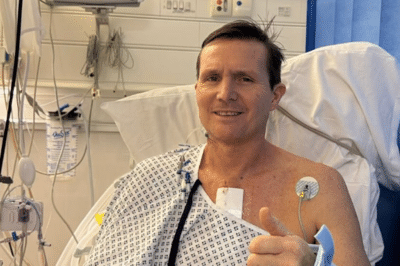
Olympic medalist Roger Black has undergone open heart surgery to solve an .
Recent years have seen the 400m runner-up and requiring numerous service station coffee stops when on the road on 'becoming an old git’. But Black, 58, discovered in August that he required major surgery, following an annual echocardiogram.
The sprinter's success arrived despite suffering from a faulty heart valve that was first picked up by a shool nurse close to 50 years ago. The Gosport-born star earned relay gold medals during World Championships in Tokyo and Athens, in addition to Olympic silver medals during a successful athletic career but last year Black was stopped in his tracks.
Despite maintaining daily 30-minute jogs, he was informed he had severe heart-valve disease and that the main blood vessel taking blood from the heart – was also damaged. "The doctors said I could be out on a jog one day and my aorta could burst and I would die – they didn’t quite put it like that, but that’s what they were saying," he .
READ MORE:
READ MORE:
"The thing is, I had felt fine – I didn’t have any symptoms apart from the tiredness," he added.
While the surgery was to prevent an altogether bleaker outlook, Black admitted the prospect struck fear in him. "My consultant called me and said: 'The time has come'.
"But it didn’t really sink in until I got the hospital letter. I knew this needed to happen, but was I scared? Absolutely. I felt very vulnerable. The chance of me not waking up afterwards was less than 2 per cent – but that’s the bit I was scared of."
Black came through the operation and is now working his way, slowly, back to full fitness. A 20-metre walk down the ward first left him 'exhausted' in the aftermath and he now requires paracetamol to handle the pain from the 11-inch wound down his chest and a list of other medication.
The former runner is on aspirin to prevent blood clots, statins for raised cholesterol and a drug to control a, temporary, erratic heart rhythm – a common complication of open-heart surgery. But he is happy to have completed a milestone earlier this month, after walking to the top of St Martha's Hill, near Guildford.
Now, Black is supporting a campaign by Heart Valve Voice to improve awareness of the symptoms of heart-valve disease: such as breathlessness after exertion and light-headedness. While Black was went for annual check-ups for his condition, others are not in as fortunate a position.
In the region of 40,000 sufferers die every year from heart-valve disease in the , and many are unaware they suffer from the issue. Like Black did, it is simple to put symptoms down to ageing.
"A typical valve is 2.5cm wide, but in those with severe stenosis the blood may be pushing through an opening of 1cm or less," Dincer Aktuerk, a consultant cardiothoracic surgeon at St Bartholomew’s Hospital Trust in London, told Mail Online. "That means your coronary arteries and heart don’t receive enough blood and you develop heart pain and breathlessness and other symptoms."
"The trouble is people tend to put the symptoms down to a drop in fitness, or to them just getting older," he added. "But if you are breathless and get tired with minimal exertion – such as going up the stairs – or have unexplained chest pain, then you need to ask whether it could be heart-valve disease."
Earlier this month, Black took to social media to reveal his own emotional journey with the condition. "Three weeks ago I had open heart surgery to replace my aortic valve and repair my aortic root," he said.
"My “incompetent” bicuspid aortic valve was discovered when I was 11 years old and for the last 47years I have been looked after by the cardiac team at Southampton General Hospital. At my annual check up last Summer it was clear that things had deteriorated despite me having no obvious symptoms - It was a shock but deep down I knew this day would come even though I never allowed my heart disease to define me and prevent me from pursuing my athletic career.
"Thank you to Mr Tsang and all the medical team in Southampton who cared for me during what was a tough time in hospital -I am forever grateful.
"Most of all thank you to my wife Jules who was there when I woke up in Intensive care 11 hours after surgery and has cared for me every day in recovery. Each day has been about small steps - yesterday was a big milestone as we walked to the top of St Martha’s Hill..our special place."